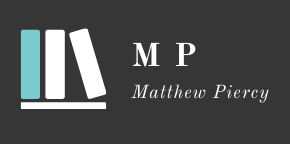Face it, we live in a world of volatility, uncertainty, complexity, and ambiguity (VUCA). Even here in Hawaii, a place where much of the world thinks of as paradise. There is an increasing necessity to not only look at the facts but to apply our HI. No, not HI as in the abbreviated form of Hawaii. Rather, HI as in Human Intelligence. To think for oneself. Not to kid oneself either. Legislation in Hawaii passed in 2010 a requirement that single-family dwellings being built must have solar water heaters. Four years later, all single-use plastic carryout bags were prohibited. As we come upon the tenth anniversary of this ban, we still need to focus and see the forest through the trees. Much remains to be done in Hawaii if we are to truly become more sustainable. The photo above, taken from my home, is but one example. Seeing the whole picture is necessary. A beautiful coastline, open space, and yet the neon green arrow points to where diesel oil burns for energy. A shortcut of sorts.
Education in the AI Era: Shortcuts and Consequences
Recently a colleague encouraged me to install Brisk and Origins as Chrome extensions to detect the misuse of AI and plagiarism. To catch out students who opt for shortcuts. Ultimately though, my energies are more into teaching how to use AI as a thought partner of sorts as from personal experience I’ve garnered an understanding of how AI has the potential to create deeper learning. Surprisingly, however, I have found that many students are reluctant to utilize AI. Though initially drawn to it, students have shared how if used ethically, AI often creates more work. More work? Or, more learning?
An invitation for more “work” is not one usually accepted. Increasingly this appears to be true. As students juggle academics, athletics, the fine arts, and all else whirling in their busy lives I sometimes marvel at the choices being made. For example, many students today have a much more “unique” approach to reading than a few generations ago. Maybe you remember the time, PI (pre-internet), when just had the book and maybe a copy of Spark Notes you purchased in a physical book. Today with the ubiquity of resources, instead of delving into the depths of a book, more traditionally or straightforwardly, students resort to a cunning shortcut. But there are no shortcuts. Watching videos, reading websites, and doing everything BUT reading the book, is a search to reach comprehension without the hassle of exhaustive reading. Ionically this makes the process a whole lot more laborious than just sitting back and reading the book!
Similar to the clever game of intellectual maneuvering to “read” a book, these past months as students apply to universities, I have wondered to what degree students are being used by AI. Opting for the long and winding road, interested in mastering the art of shortcuts, is an inaccurate portrayal being demonstrated to admissions departments? A colleague of mine advises, “Reality will surely strike.” Universities are likely to feel the brunt of who students “really” are and what students can do themselves. AI might be a tool that helps a student jump through the hoop, but once admitted might they be ill-prepared? If so, what might this mean to the future workforce?
The Shortcut Myth
The current conversations of AI and ethics remind me of the nepotism I confronted early in my international teaching career. “But Matthew, Martin is a Dueñas (surname),” chided the director of the school. I was unfamiliar with the power of a last name and had never experienced such favoritism. “Matthew, the Dueñas never fail.” All I knew was that Martin had done nothing all year. He knew, his family knew, and the director knew. Yet, ultimately I would be asked to change his grade. I stood my ground and let the director know that it would have to be her to do such a thing, not me.
There is a Chinese saying that goes “Wealth does not last beyond three generations.” This can be likened to a similar belief depicted in the American expression, “Shirtsleeves to shirtsleeves in three generations”. Later in my international teaching career I would have a chance to see this adage playing out and would once again confront nepotism. This time, however, in a different region of the world. The fading of generational wealth was evident as I was introduced to hard-working and determined grandparents who were the builders and first generation of wealth. Students’ parents often were the maintainers and were able to preserve the wealth. Yet, various students, the third generation, were either being pushed through their education or accustomed to taking shortcuts. Unaware that there are no shortcuts. Ultimately, they would be inheriting companies and positions of power in which they were ill-equipped to perform. In effect, they were on the path to becoming the squanders of the families’ wealth.
Nepotism, seemingly in the DNA of many cultures and industries, shares a kinship with the advent of AI as a shortcut. They both illustrate a preference for the familiar over the uncharted. Nepotism prioritizes kinship over meritocracy, while AI prioritizes convenience over authenticity and understanding. I continue to be a proponent of AI, recognizing that it is here to stay. It can and should be used as a tool. Also, one of the elephants in the room is the “shortcut myth.” AI may be just as students report, “more work.” However, when leveraged with honesty, as a tool, an addition, not a replacement to our Human Intelligence, results may generate greater opportunities, broader perspectives, and deeper understanding. In contrast to the constraints of nepotism, possibilities loom.
Meanwhile, it may help if we remember, there are no shortcuts.
#############################

